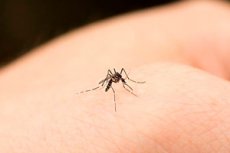New publications
European regulator approves first Chikungunya vaccine
Last reviewed: 02.07.2025

All iLive content is medically reviewed or fact checked to ensure as much factual accuracy as possible.
We have strict sourcing guidelines and only link to reputable media sites, academic research institutions and, whenever possible, medically peer reviewed studies. Note that the numbers in parentheses ([1], [2], etc.) are clickable links to these studies.
If you feel that any of our content is inaccurate, out-of-date, or otherwise questionable, please select it and press Ctrl + Enter.

The European Medicines Agency (EMA) has approved the continent's first vaccine against the Chikungunya virus, warning that climate change could fuel the spread of the disease.
Chikungunya, also called CHIK fever, is a disease similar to dengue or zika that causes high fever and severe joint pain that is often debilitating and can vary in duration.
Symptoms also include joint swelling, muscle pain, headache, nausea, fatigue and rash, the EMA said.
The EMA granted marketing authorisation, which is the final step before the vaccine is authorised for use by the European Commission.
Developed by Valneva Austria, the Ixchiq vaccine is a powder or injection that stimulates the production of neutralizing antibodies 28 days after administration to people over 18 years of age.
The effect of the vaccine lasts up to six months after vaccination.
CHIKV, named after the virus that causes the disease, "mainly affects people in the tropics and subtropics, and most countries reporting high numbers of cases... are in Central and South America," the EMA said.
"Chikungunya is not endemic to Europe, with most patients becoming infected while travelling outside the continent," the Amsterdam-based agency added.
But the agency warned that "there have been cases of transmission of the virus from infected travellers upon their return, mainly in southern Europe."
The spread of mosquitoes carrying the CHIKV virus "due to climate change could lead to cases of Chikungunya in areas that were previously free of it," the EMA said.
There is currently no licensed treatment for Chikungunya, which means "to become crooked" in the Kimakonde language spoken in Tanzania and Mozambique.
CHIKV was first identified in Tanzania in 1952 and has since been reported in 110 countries in Africa, Asia, America and Europe, the World Health Organization said.
Brazil is currently experiencing Chikungunya outbreaks in several regions, with more than 160,000 cases reported in the first quarter of 2024, the EMA added.
"The rise in mosquito-borne diseases such as Chikungunya is a clear example of the impact of climate change on health," the agency added.
